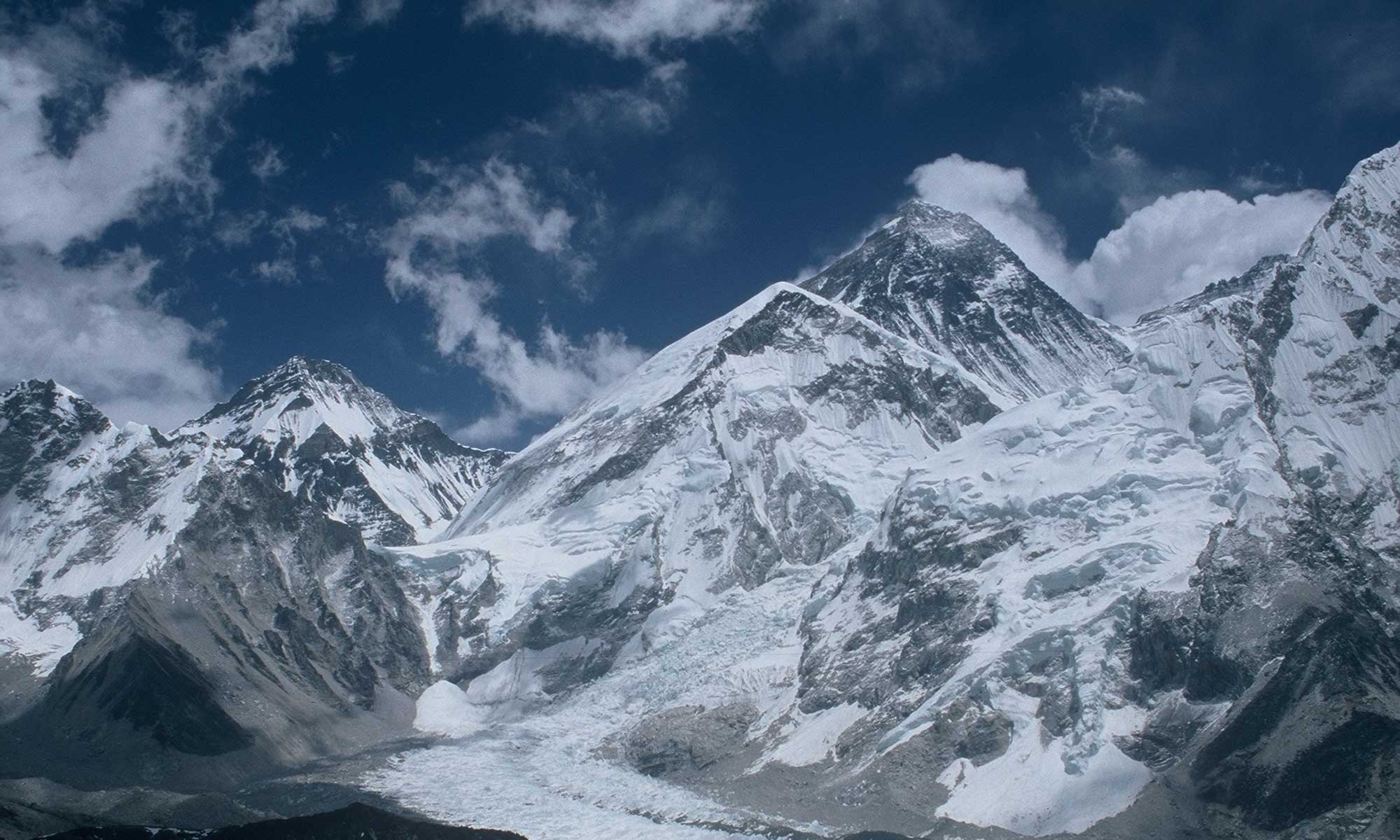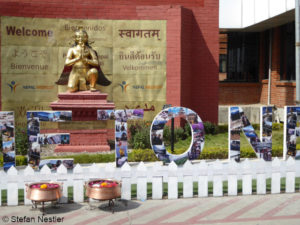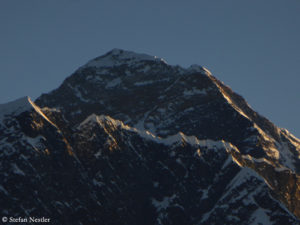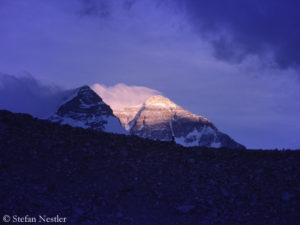Nepal tightens the entry requirements because of the Corona epidemic. From 10 March onwards, travellers from the five countries in which the highest incidence of the disease has so far been detected will no longer be able to obtain entry visas at the borders of Nepal. This applies to citizens of China, South Korea, Italy, Iran and Japan. According to the government in Kathmandu, however, this does not mean a complete ban on entry. Anyone who wants to come to Nepal from one of these countries can apply for a visa at the Nepalese embassy in their home country, but must also provide a current health certificate.
This should also have an impact on the upcoming spring season on Mount Everest and the other high mountains of Nepal. Even before the government’s decision, Nepalese expedition operators had reported that Chinese clients had cancelled their registrations due to the corona epidemic. There had also been cancellations from Italy.
More and more Chinese in Nepal
In Nepal only one corona case has been registered so far. However, objectively speaking, it seems extremely unlikely that the Himalayan state will be spared from the epidemic. After all, China is a neighbouring country of Nepal, and economic relations between the two states have become increasingly close in recent years. In 2019, China provided the second most visitors to Nepal with around 169,500 tourists. This represents 14.2 percent of all arrivals. Only from India (about 254,000 tourists; 21.4 percent) more tourists came to the Himalayan state. The number of Chinese tourists in Nepal has been rising continuously for years. The Nepalese government has deliberately attracted them: since 2011, holidaymakers from China have not had to pay visa fees, unlike travellers from other countries. The number of Chinese mountaineers on expeditions to the world’s highest mountains has also increased in recent years.
European operators (still) calm
“Strangely enough, no client has so far asked us about Corona or cancelled their booking,” Dominik Müller, head of the German expedition and trekking operator Amical alpin, writes to me. “I think our customer base, which comes from Germany, Austria, Switzerland and South Tyrol, is travel-tested, well-informed and does not allow themselves to be infected by the current excitement.” He expects, however, that in the Himalayas “the Chinese guest will be absent”.
So far, there has been no indication from the Chinese-Tibetan authorities that the planned Everest expeditions on the Tibetan north side of Mount Everest could be threatened by the corona epidemic, Dominik writes. “But of course, this can happen very quickly with the Chinese.” Amical will not be en route on Everest this spring.
Entry to Tibet via Nepal instead of China
The Swiss operator Kobler & Partner is assuming that their Everest expedition can take place this spring as planned. “The Tibetans say you can come in,” Kari Kobler tells me, adding that so far there has only been one case of corona there, and the Chinese affected has left Tibet. “However, it is recommended not to enter via (the Chinese) Chengdu, as we usually do. Therefore we will travel to Everest via Kathmandu and Lhasa.”
Price increase for Climbing Sherpas beaten down
A few of his clients have postponed their expedition plans by a year because of current developments, reports the 64-year-old founder of the agency, who plans to set off for the Himalayas in mid-March. “I assume that it will be emptier on the north side of Everest – not only due to Corona, but also because of the higher permit fees in Tibet.”
For example, the Russian organizer 7 Summits Club had switched to the Nepalese side because of the higher fees, says Kari. After all, according to Kobler, it was achieved that the price increase for Nepalese Climbing Sherpas this year was not as drastic as initially announced: “We were able to beaten down the permit price per Sherpa from 4,500 to 3,500 dollars.“ Until now, the commercial teams had to pay 3,300 dollars per Sherpa.
Lukas Furtenbach, head of the Austrian operator Furtenbach Adventures, points out that the only land border crossing Keruang between China and Nepal has been closed in both directions for weeks. “So everything is and remains uncertain on the north side (and south anyway).”
Update 10 March: The stricter entry conditions in Nepal due to the corona epidemic now also apply to travelers from Germany, France and Spain.





